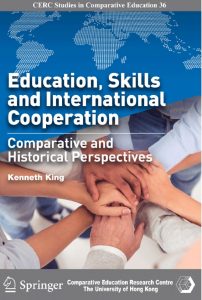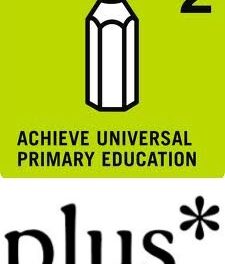By Kenneth King, Emeritus Professor at the University of Edinburgh, and one of the founding members of UKFIET.
When I was Distinguished Visiting Professor in the University of Hong Kong 10 years ago, Professor Mark Bray suggested pulling into one volume what he, too generously, termed ‘KK’s Greatest Hits’. I hesitated for many years, wondering about the value of such a collection to students of development, comparative education and area studies. But I recognised that too often we knew only one facet of someone’s academic work, such as ‘the vocational school fallacy’, ‘shadow education’, ‘the dragon’s gift’ or ‘the diploma disease’. We didn’t know how this well-known item related to this scholar’s earlier or later work; nor did we know where this generative theme had come from, and how it had been developed or dropped. These historical interconnections of different threads in 50 years of scholarly and policy work are what I have sought to weave together in this latest volume in the University of Hong Kong Comparative Education Research Centre’s (CERC’s) major Monograph Series. This blog traces a little of this history in my own case. I hope it has some resonance with colleagues and friends in the UK Forum on International Education and Training (UKFIET).
Many younger colleagues may not know that my earliest work was on the political history and connections between education and Pan-Africanism, and between Africa and the Southern States of the USA. This derived from my analysis of the first two really major Education Commissions ever to report on African education (the Phelps-Stokes Reports). Some of this historical research might now be seen to connect with the moves to ‘decolonise’ education in Africa. The focus of these Commissions on the value of ‘industrial’ education for Africa was the beginning of a career-long involvement with the critical analysis of vocational education and training.
Another theme that might be of interest to younger scholars seeking to select an appropriate doctoral topic, is to follow how I stumbled across the informal sector in Kenya in the very year (1972) when the term first became internationally known through the International Labour Organization (ILO). It raises questions about how we should select our research topics, and what is the role of serendipity in such decisions?
A further illustration relates to Philip Foster’s famous article from 1965 on the vocational school fallacy in development planning. As I was working in Ghana on a DFID-supported consortium, I suddenly recognised that it would be possible to revisit Foster’s ‘fallacy’ some 40 years after he had first written it. This deliberate revisiting of earlier research was something I was fortunately able to do in re-investigating education and the informal sector in Kenya 20 years after my initial research in the 1970s.
Both the Phelps-Stokes Reports and the role of the ILO in promoting the informal sector had raised questions about the role and influence of development partners and their impact on education and training policy. This too became a red thread in my work, as I began to analyse the extent and character of research in the regular work of donor agencies. This was much sharpened by spending three years in Canada’s bilateral research agency, the International Development Research Centre (IDRC), in the late 1970s and early 1980s. Over the years, I have looked at many dimensions of development cooperation agencies, including their support of educational research. I have not focused only on OECD-DAC donors such as Japan, but have more recently worked on both China’s and India’s ‘aid’ to Africa.
I hope UKFIET’s community of scholars, NGOs and policy people may find some of the above themes of interest, as well as some of the other 12 chapters.
 This latest book can be purchased from CERC at the University of Hong Kong: Education, Skills and International Cooperation: Comparative and Historical Perspectives, by Kenneth King (2018), in the Comparative Education Research Centre (CERC)’s Monograph Series No 36, University of Hong Kong & Springer.
This latest book can be purchased from CERC at the University of Hong Kong: Education, Skills and International Cooperation: Comparative and Historical Perspectives, by Kenneth King (2018), in the Comparative Education Research Centre (CERC)’s Monograph Series No 36, University of Hong Kong & Springer.
For the full list of publications by Professor Emeritus Kenneth King please see here.





